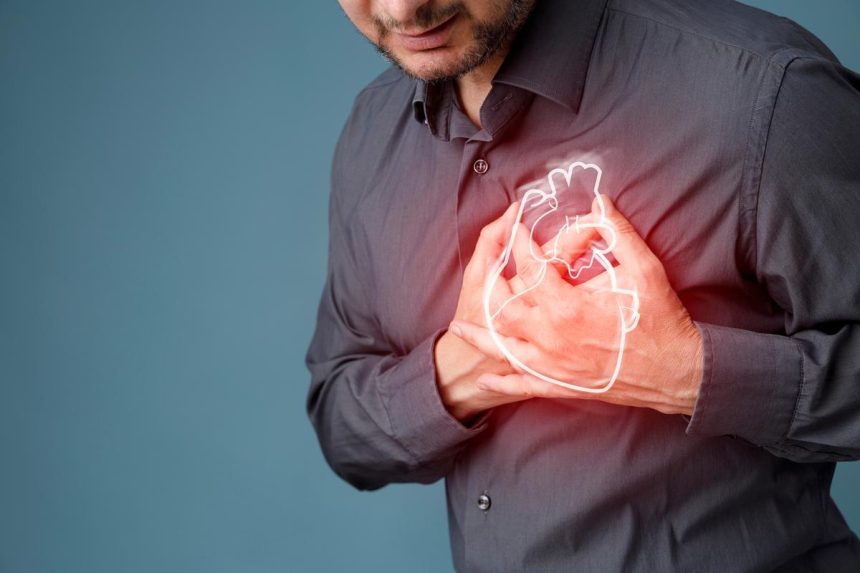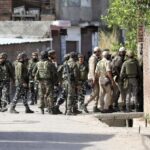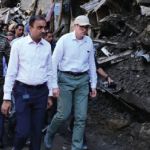Srinagar, Sept 29: On World Heart Day, doctors in Kashmir have raised alarms about the increasing incidence of cardiovascular disease (CVD) and heart attacks among the younger population. They emphasize the urgent need for regular physical exercise and healthier lifestyles to combat this growing health crisis.
As part of the Save Heart Kashmir initiative, a 5K run was organized on Sunday, aimed at promoting awareness about cardiovascular health and the importance of physical fitness. The event was flagged off by Syed Abid Rasheed Shah, Secretary of the Health & Medical Education Department, and attracted health professionals, fitness enthusiasts, and members of the general public.
Dr. Imran Hafeez, Additional Professor at the Department of Cardiology, SKIMS Srinagar, and president of the Save Heart Initiative, expressed concern over the alarming rise in heart attacks among young people, particularly post-COVID-19. “We are witnessing a troubling trend where young individuals are dying from sudden heart attacks,” he stated, emphasizing that regular physical activity is crucial for heart health.
He added, “It’s essential to move away from a sedentary lifestyle, which often leads to unhealthy eating habits, and instead adopt more active, health-conscious routines. Lack of physical activity can result in obesity, insulin resistance, hypertension, and diabetes, which cluster together as significant risk factors for heart disease.”
Dr. Imran noted that heart attacks were once considered predominantly a Western issue, but now two-thirds of heart attacks occur in developing countries. “Many patients here cannot afford quality healthcare. The heart disease in this subcontinent is more aggressive and manifests earlier,” he warned.
He highlighted that the demographic of heart attack patients has shifted. “Previously, elderly individuals would experience heart attacks, but now we see many patients under 45 years of age suffering from them. This trend is particularly concerning as it involves young patients who may be smokers, diabetic, or obese,” he explained.
The Save Heart Kashmir initiative, established in 2017 by three local doctors, aims to manage cardiac emergencies effectively through a WhatsApp network. Dr. Imran praised the efforts of doctors who collaborate remotely to treat cardiac patients in peripheral hospitals within the critical golden hour. “I salute those doctors who manage patients via WhatsApp, getting expert opinions from specialists,” he said.
He commended the local doctors for their significant contributions to the initiative. “This effort is unique globally. Despite limited health infrastructure, doctors in remote areas have gained confidence in managing cardiac emergencies,” he noted.
The initiative has successfully connected over 1,200 doctors, mainly cardiologists and specialists, and has been recognized as a best clinical practice for managing cardiac emergencies in resource-limited areas by both the European and American Heart Associations.
Dr. Irfan Bhat, a cardiologist at SMHS Hospital, pointed out that lifestyle changes and poor dietary habits have significantly contributed to the rising number of heart attacks. “In areas marked by urbanization, industrialization, and increased pollution, we observe a corresponding rise in heart attacks. This trend is concerning,” he remarked.
Dr. Masood Rashid , an anesthesia specialist and critical care expert, highlighted the success of the initiative due to the upgrade of emergency rooms in peripheral hospitals. He stated, “The directorate of health services Kashmir has improved ERs in remote areas with better equipment and emergency drugs, as well as by providing Advanced Cardiac Life Support (ACLS) training to medical staff.”
Dr. Masood added, “It is a courageous effort by doctors to treat myocardial infarction patients in these settings. I hope the DHSK will continue to enhance facilities in peripheral hospitals for better outcomes.”
The doctors also noted the importance of 108 critical care ambulances, which play a vital role in saving lives and are just a call away when needed.
As World Heart Day comes to a close, the message is clear: maintaining a healthy heart through exercise and lifestyle changes is more crucial than ever, particularly for the youth in Kashmir.









